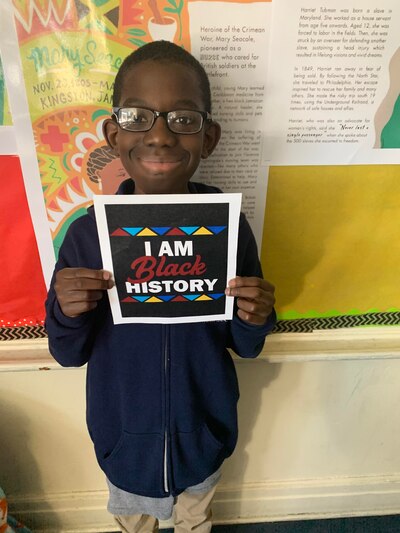“Patience” is the word they keep hearing.
But for many Newark students, like millions of other Americans nervously awaiting the outcome of the too-close-to-call presidential election, patience has been hard to muster. So some teachers spent time Wednesday helping students process the election’s evolving outcome and their own raw emotions.
“They’re just really supportive with the situation,” Tara Johnson, a senior at University High School, said Wednesday. “They know what we’re going through.”
Newark schools geared up to the election by helping register voters and urging 18-year-old students to cast ballots. Teachers also taught students about the voting process and warned them about misinformation and this election’s uncertain timeline.

Yet there’s only so much educators could do to prepare students for such an unprecedented election, or ease their anxiety about a divisive presidential race occurring during a pandemic and on the heels of mass protests against anti-Black racism and police violence. For many Newark students, who are mostly Black or Hispanic, the outcome of this election feels especially consequential.
“I couldn’t sleep last night,” said Johnson, who is University’s student body president. “I was so anxious to see who was in the lead and kept refreshing my feed.”
At Science Park High School, history and sociology teacher Branden Rippey reviewed a map of electoral college votes with his students Wednesday, explaining how neither candidate had secured enough votes yet to clinch the election. Then he answered student questions: Why are there only two major political parties? Are there any actual problems with mail-in voting? What happens if President Trump refuses to leave office?
With the president and his supporters spreading misinformation, it’s important for students to get accurate information about the voting process and to critically evaluate what they read and hear about the election, Rippey said.
“There’s a war on truth in this country,” he said, “and we need to be clear that some people are consciously trying to confuse and manipulate Americans.”

At TEAM Academy charter school, social studies teacher Heike Domine paused a unit on ancient history the week before the election. Instead, she taught her sixth graders about the history of voting rights in the United States, from the disenfranchisement of Black people to modern forms of voter suppression. She also tried to manage their expectations.
“I want them to be OK with the fact that they’re not going to know the results for a really long time,” Domine said on Election Day.
Still, by Wednesday, the students were anxious to know the results. They understood that the stakes are high.
Student Hafsah Dauda was concerned about low-income Americans, especially essential workers, and believed that a Joe Biden presidency could raise their wages. Her classmate, Abdul Haq-Adome, was thinking about how to repair the U.S. economy and safely reopen businesses and schools such as his own, which has been shuttered since March.

Abdul had read that President Trump didn’t have a clear plan for managing the pandemic, which didn’t exactly fill Abdul with confidence.
“I’m really hoping that, whichever person is picked to be the president,” he said, “that instead of just sitting there and hoping COVID-19 will eventually go away, they will actually have a plan to fight the virus.”
Before the election, some of Domine’s students had questioned whether voting really matters. Domine responded that it’s understandable why some people grow frustrated with the political system, especially Black Americans, who have never had to stop fighting for their rights. Yet, she said, people who withdraw from the democratic process “lose their opportunity to share their voice.”
That rang true to Hafsah, whose father voted in the election.
“He felt like it’s an important part of his life to vote because he thinks it might change the whole society,” she said. “If you don’t vote, that means that you’re not speaking for yourself.”
Back at University High School, eighth-grader Mia Jones had also prepped for the election. She’d watched a documentary about voter suppression, and discussed the importance of voting with her parents. Yet she was still feeling jittery on Wednesday.
“I’m kind of anxious,” she said. “I just need some, like, stability and clarity on the election right now.”
The presidential campaign had been stressful enough. Mia, who is a member of her school’s debate team, was dismayed by what she saw during the first debate.
“It was really chaotic, nobody could get their point across,” she said. “You couldn’t evaluate what they were saying, so there really wasn’t a debate.”
Still, Mia has kept her faith in the electoral process. She wants justice for Black Americans, women, and LGBTQ people. In a few years, she’ll let that be known at the ballot box.
“I have all these opinions,” she said, “and I can’t wait to vote so I can put my voice out there and make it be heard.”





